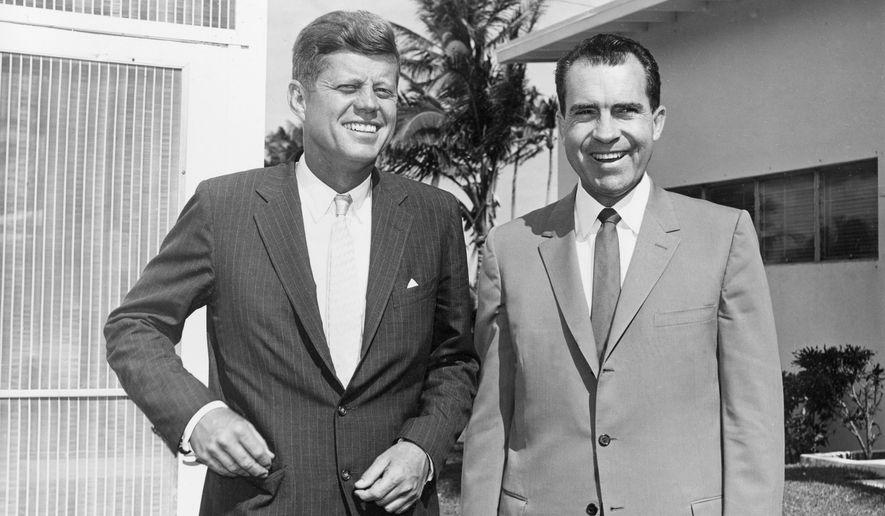OPINION:
The turmoil of the last few days must seem, in Yogi Berra’s words, “like deja vu all over again” to Americans familiar with the presidential election of 1960.
John F. Kennedy was elected president that November in one of the closest elections in modern U.S. history. When it was over, his popular vote margin was 113,000 votes or fewer than one-half a vote per precinct more than Vice President Richard Nixon. Only late count returns in Chicago put Kennedy over the top in Illinois and gave him the electoral votes he needed to win.
Nixon spent election night in California with his family and top strategists anxiously awaiting the results from Illinois, where Chicago’s Democratic Mayor Richard J. Daley’s forces were refusing to report the Chicago vote until the rest of the state’s vote was reported. Outside Chicago, Nixon was piling up votes from the smaller cities, towns and rural areas of the state, but everyone knew the key was the Chicago urban vote.
Nixon went to bed that night without knowing whether he had won or lost, but was awakened early the next morning by his daughter at the insistence of his supporters. They were convinced that Daley’s Chicago machine was stealing the election and wanted to make sure their candidate would not concede. The state’s senior senator, Everett Dirksen, insisted that Nixon couldn’t concede and had to demand a recount or, as he suggested, the fraudulent ballots would be destroyed.
Nixon flew back to Washington the next morning pondering what he should do. Even President Dwight D. Eisenhower, still in the White House, argued that Nixon had to fight because it would be unconscionable to let the opposition steal the White House itself. Many claimed Nixon had to contest the results not just for his own good and that of his party, but because if he didn’t, future elections too might be stolen and public faith in the system would be undermined.
The media of the day “called” Illinois when the Daley machine finally reported the Chicago vote. Nixon did not want to put the country through what might transpire if he refused to concede and demanded a recount. A recount would take a long time, he later wrote, and in the meantime the nation would be vulnerable to its enemies. He also believed it could take years to restore public faith in a system that people would see as flawed or broken.
The vice president considered then ultimately decided that even if it meant the end of his political career, he couldn’t put the country through the turmoil that would ensue. After considering the advice he had received and his fear of what might follow a demand for a recount, Nixon later wrote, he “sent Kennedy a telegram conceding the election.”
As a result, it is not known whether Kennedy actually won the 1960 election. Ben Bradlee of Washington Post fame was one of Kennedy’s closest friends and reported later in his own memoirs that Kennedy told him that late on election night he called Mayor Daley to ask how things looked. Daley responded, according to the president, that “with a little bit of luck and the help of a few close friends you’re going to carry Illinois.”
After President Kennedy’s death, even as dedicated a liberal as the late Tom Wicker of The New York Times was to write that “Nobody knows to this day, or ever will, who the American people really elected president in 1960 … John F. Kennedy was inaugurated, but it was not at all clear that this was really the will of the people or, if so, by what means and margin that will was expressed.”
Who is to say if we would be facing the crisis we are in today if Nixon had decided to fight as Dirksen and Eisenhower advised? Perhaps the fight, however it turned out, would have led to reforms that might have made vote fraud and election rigging more difficult today.
We’ll never know the answer to that question, but it is clear that the public’s faith in the American electoral system is at risk today. Mr. Trump’s opponents argue that by raising the specter of cheating and voter fraud it is he who is undermining the faith in our electoral system. Yet, if the legitimate questions being raised by President Trump and his supporters are not answered or even seriously investigated that faith will have been weakened not by the president, but by those who insist that no one really needs to see or know what goes on behind closed doors.
• David A. Keene is an editor at large at The Washington Times.




Please read our comment policy before commenting.